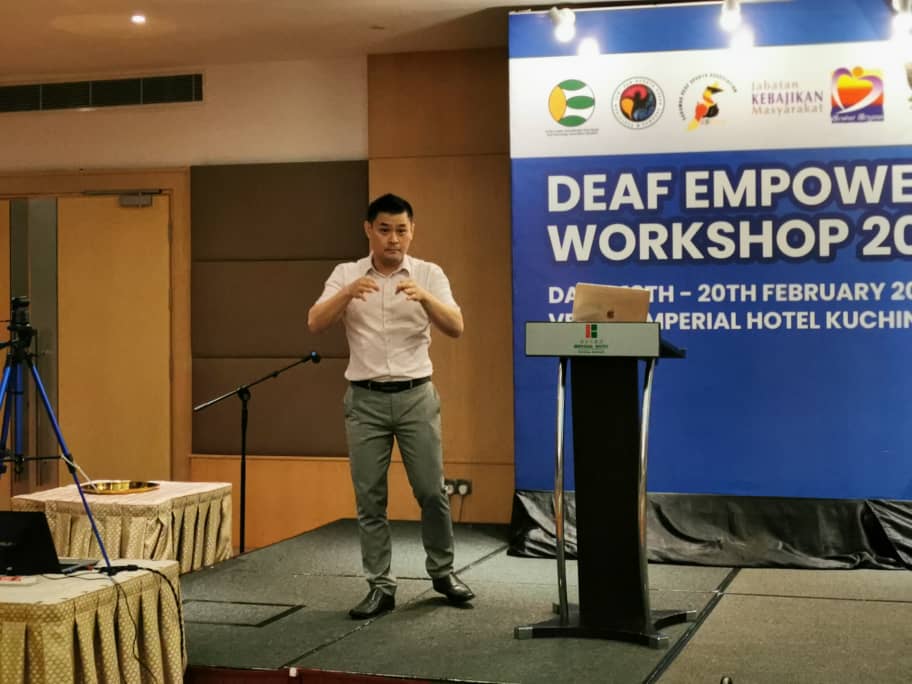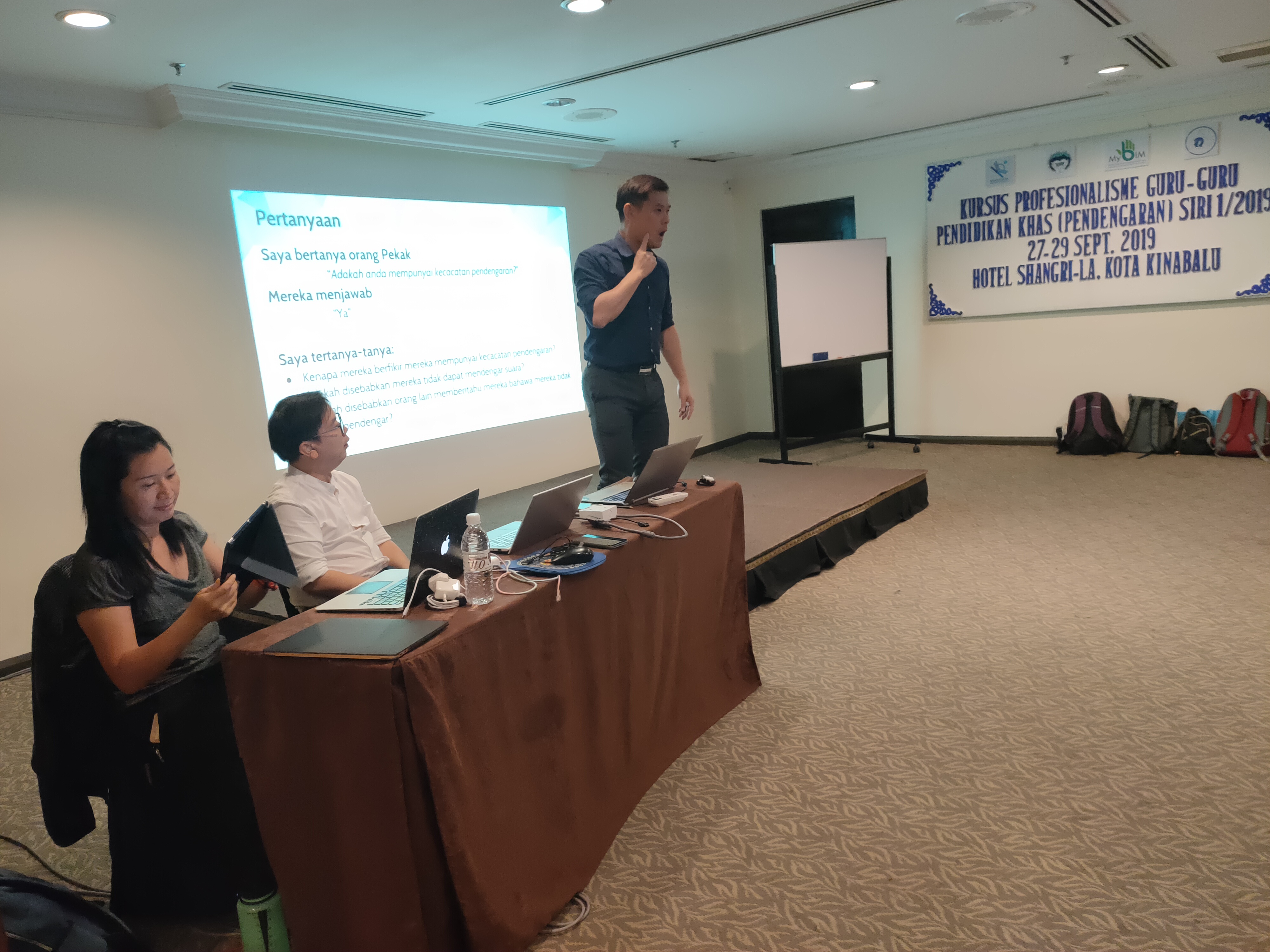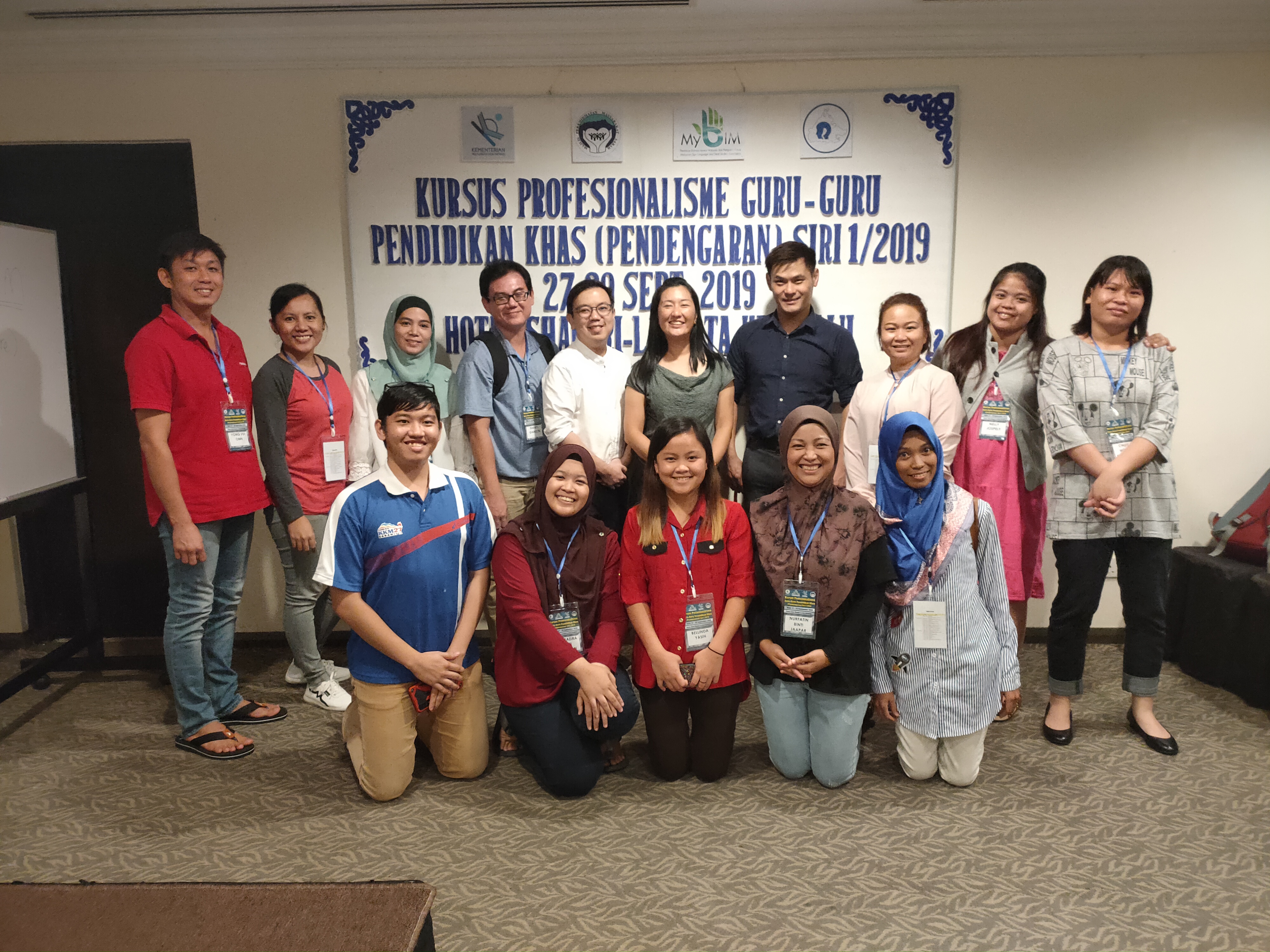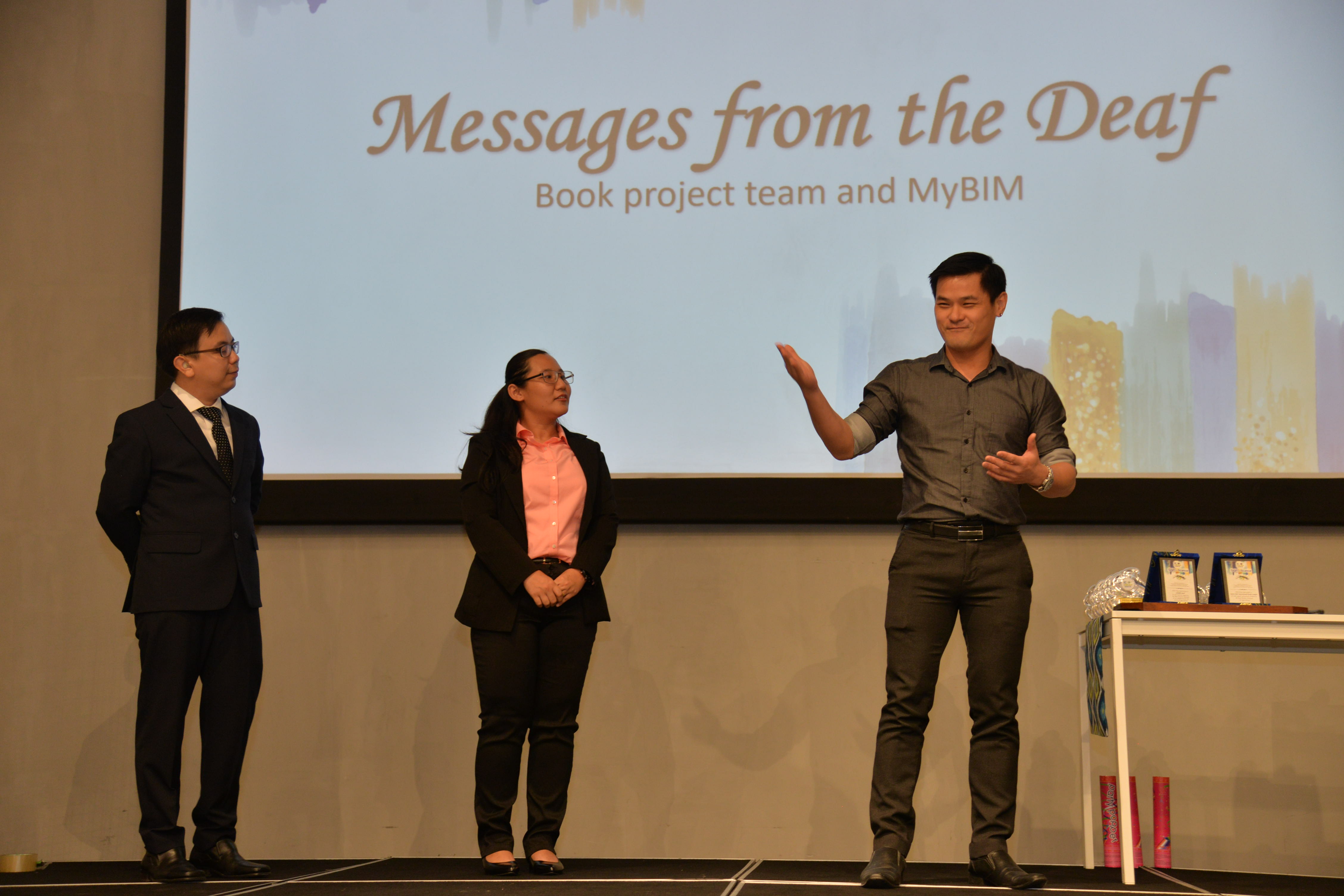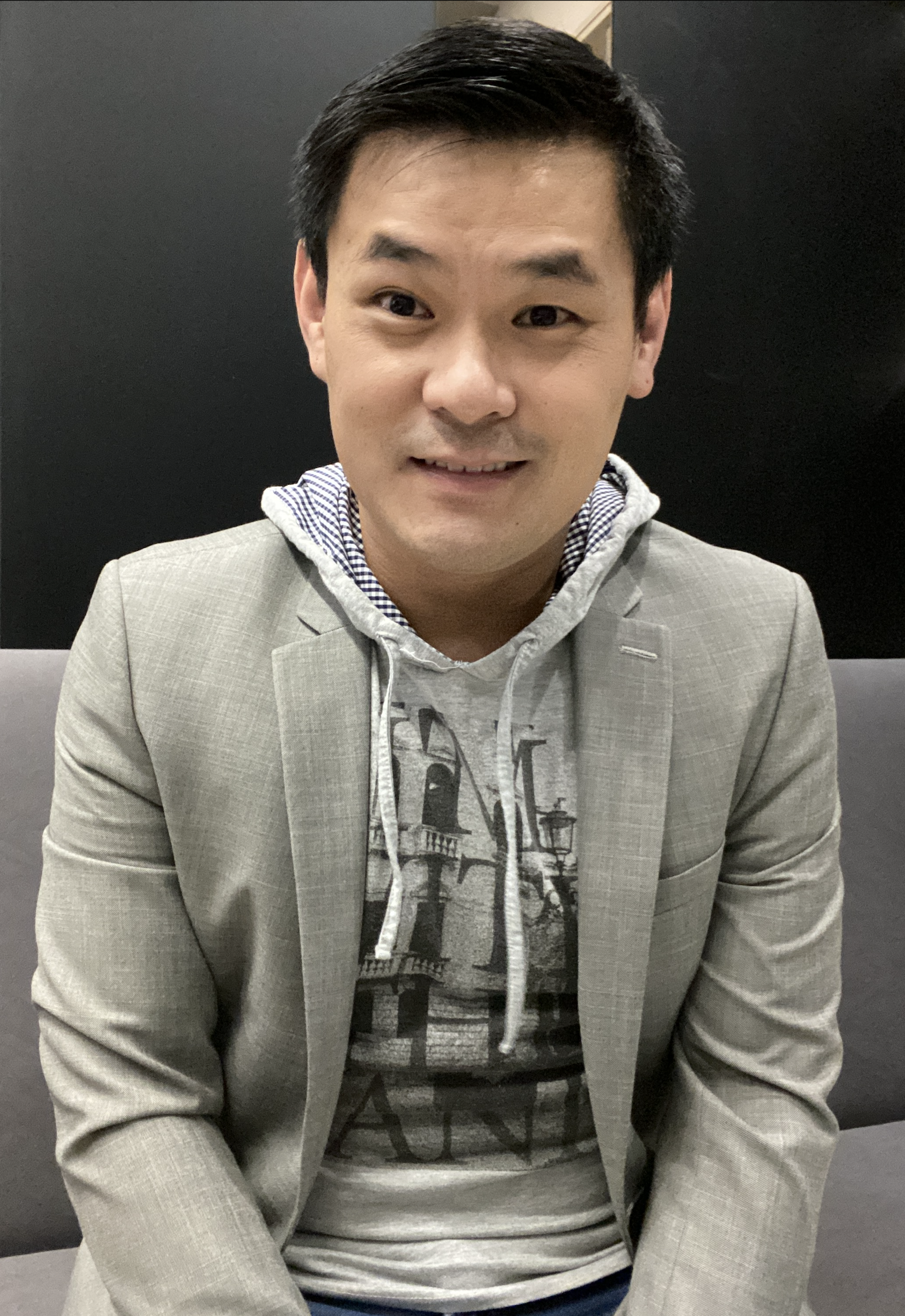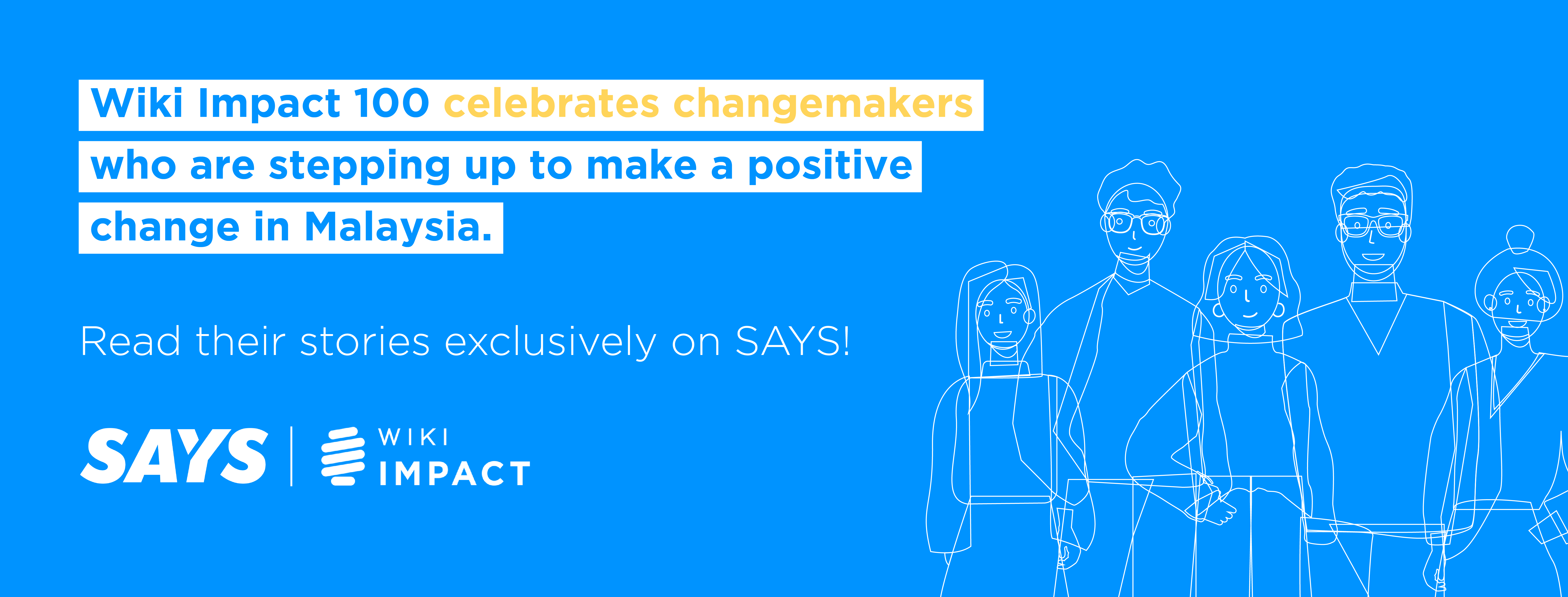This Activist Is Developing Malaysian Sign Language To Improve The Deaf Community's Lives
Dr Anthony hopes that one day, Malaysian Sign Language will be one of the main communication mediums in our country.
If you ask Dr Anthony Alexander Chong what his passion is, he's sure to tell you that it's serving the Deaf community
Dr Anthony at a Deaf Empowerment Workshop in Kuching, Sarawak this year.
Image via Dr Anthony (Provided to SAYS)"I think my life has been predestined for the community," he said.
Having worked with the Deaf community since the young age of 18, the now 40-year-old Dr Anthony has been actively advocating for them for over 20 years.
The only break he ever had throughout his 20 years of serving was when he left Malaysia for two years to pursue his second Master's degree at Gallaudet University in the US.
He is also passionate about Malaysian Sign Language (BIM), so much so that he serves as an activist, advocate, educator, facilitator, speaker, and researcher.
"My life has been associated with the Deaf community. I have been serving them through employment, associations, and training projects," the KL native said.
In 2014, Dr Anthony co-founded the Malaysian Sign Language and Deaf Studies Association (MyBIM) for one reason — to bring more developments to BIM
Dr Anthony conducting a training session at Shangri-La Hotel, Kota Kinabalu in 2019.
Image via Dr Anthony (Provided to SAYS)He realised that most, if not all, Deaf organisations in Malaysia exist for the welfare of the Deaf community, and not for the development of BIM.
Since its establishment, MyBIM has gone above and beyond by organising activities, workshops, and projects that target not only the Deaf community, but the public as well.
This includes addressing misconceptions about BIM, organising disability pride movements, and celebrating and showcasing different Deaf communities, among others.
An excellent and recent example of how the organisation showcases the beauty of BIM is sign language poetry
Sign language poetry is a form of aesthetic signing, where the language is used to express a message in a beautiful, poetic manner. The aesthetic literature is not relatively new — it has been closely practised in other countries for years.
However, the Deaf community in Malaysia is less than aware of its existence, due to a lack of support within the community.
Fortunately, MyBIM eventually received grants which helped fund BIM poetry courses for the Deaf community. Nine teams partook in the course, and although they initially lacked confidence, they ended up impressing Dr Anthony.
Dr Anthony with his students at Shangri-La Hotel, Kota Kinabalu in 2019.
Image via Dr Anthony (Provided to SAYS)In fact, Dr Anthony had not expected all the poems created by the nine teams to be so beautiful and creative, especially since all of them were new to BIM poetry.
He noted, "BIM poetry has never been part of our Deaf culture as many of us were unable to create any poems.
"Their fantastic work showed that they are creative and can inspire people with BIM poetry, but they just did not know how. It is obvious that the Deaf community just needs the right tools and guidance."
Here's a look at one of the teams performing their BIM poem, titled Deaf Motherhood:
Dr Anthony more than welcomes everyone to experience the beauty of BIM by attending workshops. Having said that, every language requires plenty of time to master, and BIM is no exception.
"MyBIM showcases BIM to the public and encourages them to experience [the language] through workshops. However, it's not a course. Many people think that they can master BIM after a two-hour workshop — they can't," said Dr Anthony.
According to The Language Doctors, it takes several years to be fluent in sign language.
Dr Anthony shared that MyBIM does not offer permanent courses to the public as "many Deaf organisations already offer that".
Instead, MyBIM hopes to offer BIM as a real course at university level. This also allows them to set up a BIM or Deaf research centre to show that the language has its own grammar and structure.
While Dr Anthony carries big dreams and goals for MyBIM, the organisation comes with its own set of challenges and difficulties as well
"This main aim has not been easy on us as many of us are not full-time employees of MyBIM," he shared.
That's not all. There is also the funding issue, a hurdle that MyBIM faces constantly.
"We need funding, not for the operating expenses, but for community empowerment.
"Empowerment is our priority because although we have many Deaf associations in Malaysia, even after 25 years, the changes the Deaf community went through were not impactful enough for them to display their pride as a Deaf person," said Dr Anthony.
As such, Dr Anthony wishes to bridge the gap between the Deaf community and the public, as well as contribute to the development of BIM in Malaysia
Through this, he hopes that MyBIM receives the support it needs to elevate BIM pride through various training projects, which include BIM poetry, linguistics, BIM teaching, BIM fluency evaluation, and facilitation skills, among others.
"It will shape a better identity of a Deaf person as a linguistic minority, not as a person with disabilities.
"I would like to see, in my lifetime, BIM taught as a language and used as a medium of instruction and communication throughout the formal education system, as well as in non-formal education settings," explains Dr Anthony.
There are several ways the rakyat can help. In fact, Dr Anthony says it can be as simple as spreading the correct term — 'BIM', 'Malaysian Sign Language', or 'Bahasa Isyarat Malaysia' — to help raise awareness for the Deaf community.
"It is important not to confuse people with wrong terms. For example, people assume that our language is 'sign language'. It is not. The term 'sign language' is general, and there are more than 200 sign languages around the world.
"The rakyat can also help us secure funds or run appropriate projects with MyBIM for community empowerment. There are a lot of things for the Deaf community to catch up on," he explained.
All this month, SAYS will be featuring inspiring stories of extraordinary Malaysian changemakers in collaboration with Wiki Impact
Wiki Impact is an online platform dedicated to the impact industry. They share stories and data on issues that matter, highlighting impact-driven organisations and changemakers on the ground. Categories include poverty alleviation, social justice, gender equality, healthcare and education for all, environmental sustainability, animal welfare, impact influencers, and more!
Find out more here.
